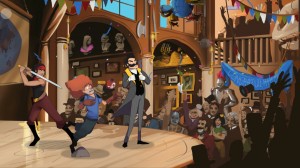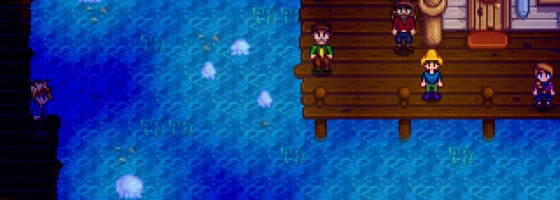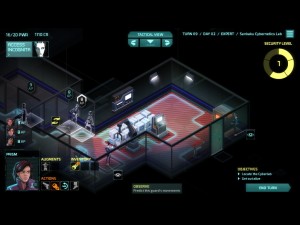One of the best things about doing the podcasts on Game-Wisdom has to be talking to developers from all around the world. Everyone has their own story on how/why they got into the Game Industry. Thanks to the rise of the Indie market, we’re seeing a lot of people become owners of their own company/brand to make it big.
However, to be successful in a market full of hundreds of people and studios who are trying to do the same thing as you requires specific skills. For today’s post, we’re going to look at the two sides of what it means to be a successful Indie developer.
I’m sure if you’ve read previous posts here or listened to the podcasts, then you know what I’m going to be talking about next. To be a successful game designer and Indie developer, you need to be of two minds, but there is more to it that we’re going to talk about.
The Artist:
Video games are a passionate industry, and you won’t get far here without being able to create something. The days of just being able to copy another game’s design and sell it for big profit are gone. There are just too many games being released daily for that to work anymore.
If you want to be in this industry, you need to be able to know and understand game design, and that’s where the artist comes in. The person who wants to make a video game not because they’re looking to be rich, but because they have an idea that they want to see made no matter what. These are the people willing to put everything they own and their livelihood to make something amazing.
This is the same passion that helped create games like Braid, Stardew Valley, Undertale and more. These are games that were not conceived with the goal of making millions of dollars, but because the developer was passionate and wanted them to be made.
In today’s market, the Independent scene has flourished thanks to these games that would have never been made at an AAA studio, because they’re not able to take as many chances compared to a small team; games like Duskers, Gone Home and Her Story are examples of this.
The artist is the person who wants to explore and create unique pieces of game design, while having the knowledge of understanding what works/doesn’t work.
Without the artist, your games will not stand out from everyone else, or you’ll create games that no one else wants to play. With that said, let’s talk business.
The Business (Wo)Man:
Being passionate about video games is great, but at the end of the day, there is a reason that the term “Starving Artist” exists. Passion can be a great motivator, but it can also blind you to the real world.
Putting everything you own on the line to make something great is a worthy goal, but if you don’t have a plan to make it work, then things might not go so well for you.
With so many games being released daily, having a great game idea is not enough; it doesn’t matter how unique, thought provoking or amazing your game is, when it disappears off the front page of a store within 30 minutes. The business man knows about timing the release of your game, the trends of the market when it comes to promos and sales, and figuring out the best ways to make sure that people are aware of your game’s release and potential.
Understanding the marketing and networking side is crucial to being successful in the industry. This is the person who knows to reach out to press to let people know about their games, and knows that disappearing for three years with no contact from the outside world is not how you sell a game. No matter how great your idea is or how awesome your team is at working with you, if you’re not bringing in more than you’re putting out, you are going to lose.

The Business man understands how to manage a company/group and the best ways to get the game out in front of people and talking about it
Knowing business also means understanding how to manage people and work on a project; a team of 10 people who can’t work together is a team that’s not going to produce anything of note.
Without the business man, your “dream idea” will remain a dream, and your studio will be short-lived.
Bring it Together:
What I just described are two different mentalities that work in the Game Industry: It’s the classic struggle between the hippie and the suit. Many people who enter the industry think that these two thoughts are conflicting and you have to decide where you stand.
However, talking to more developers over the years, that’s not true; the successful people in the industry are those who understand that it’s not conflicting to think in terms of both art and business, but that a combination works.
Speaking to Z from Serenity Forge on the Perceptive Podcast, we talked about this concept of art vs. business, and he discussed that he doesn’t feel like he’s being pulled in two different directions. On the cast, we talked about how he sees the business in being artistic, just as how there is an art to understanding business.
Being able to take a critical look at a game idea to see if it would be something worth making is just as valuable as taking the time to research potential contacts and those who would be interested in your studio and your game. When you run your own game company, you need to have these choices made, or you will not last long in the market.
I cannot stress the following point enough: If you cannot/won’t/aren’t able to handle the business side of things, GET SOMEONE WHO CAN. The value of someone who knows the business side of things cannot be understated when it comes to getting your game out there. This also extends into doing crowdfunding campaigns, but discussing that would take us off topic for this post.
Without both you will not be able to achieve a level of success in the Game Industry, but before we end this post, let’s define “success.” Success is not just putting out a great video game, but putting out a game that can financially support you, your family, and any employees who worked with you. I know it’s very tempting to point to developers who made it big thanks to one great idea, but one great game does not make a company.
I keep saying this: The Game Industry is a fun business, but at the end of the day it’s still a business, and it’s important to know all the sides of the business if you want to succeed and stay afloat.
If you enjoyed this post, please consider donating to the Game-Wisdom Patreon campaign. Your donations will help to keep the site going and allow me to keep putting out great content.



